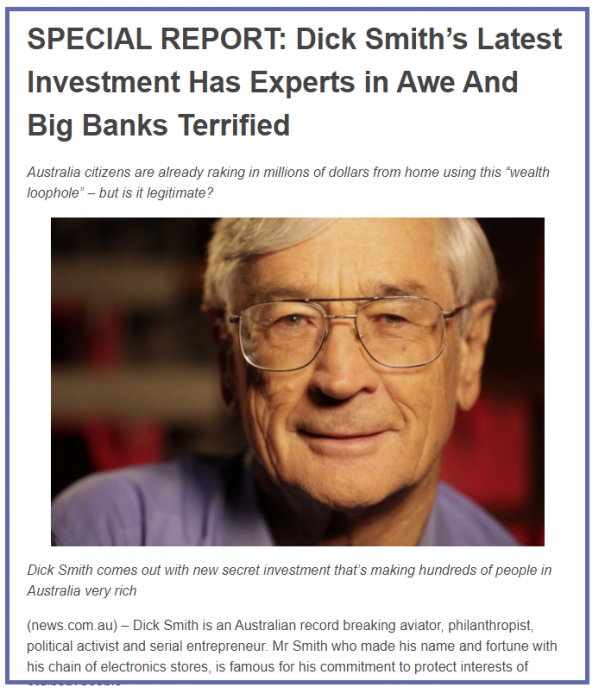Is Dick Smith trying to sell you a Bitcoin investment scheme that has big banks terrified? Have you found Kochie’s secret crypto investment plan? If so, then you’ve spotted one of the latest strategies used by crypto scammers to separate you from your crypto capital — impersonating Australian celebrities to push crypto Ponzi schemes.
The Australian Securities and Investments Commission has recently published a warning directed at potential crypto investors, stating that Bitcoin scammers are now using the names of popular Australian celebrities, government agencies, and prominent news sites in order to legitimize scams.
Some of the celebrity name based scams directed towards Aussie investors include scams purportedly supported by Waleed Aly, Mike Baird, Celeste Barber, Andrew ‘Twiggy’ Forrest, David ‘Kochie’ Koch, Michael Rowland, Dick Smith, Karl Stefanovic and Virginia Trioli.
A report published by the ASIC on July 29 states that scammers are using fake celebrity endorsements to create fake websites, offering investors crypto trading bots that promise guaranteed profits. Other techniques used by scammers include “pump and dump” scams, in which scammers use a fake celebrity endorsement to artificially inflate the value of otherwise low-value cryptocurrency tokens.
While many of the offending scam sites are no longer live, it’s still possible to find many false celebrity endorsed crypto scams online today. Some scam platforms specifically identified by the ASIC include Bitcoin Evolution, Bitcoin Revolution and Bitcoin Trader.
No, Dick Smith Doesn’t Want to Share His Secret Crypto Strategy With You
Sites that claim to deliver profits using the names of celebrities such as Dick Smith remain online, promising unsuspecting investors access to “wealth loopholes” through a “secret investment” as illustrated below:

Dick Smith clarified his position on Bitcoin and cryptocurrency investments earlier this year via Twitter, stating in no uncertain terms that Dick Smith does not, in any way, endorse crypto investing.
With crypto scams capturing more than $4 billion in 2019, performing due diligence and extensive research on any crypto product before getting involved is more important than ever. ASIC notes that, once lost to scammers, crypto is virtually impossible to recover:
“Fraudsters are often based overseas and so are their scam websites, which makes them notoriously difficult to close down. It also makes it almost impossible to track, trace and recover lost money.”


